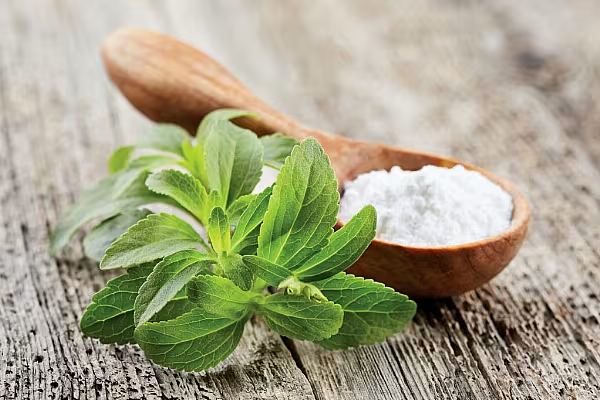Nick Peksa explores the challenges and opportunities in the sugar sector, amidst falling prices, increased taxes, and consumer demand for sugar alternatives. This article first appeared in ESM Issue 6, 2019.
When exploring the corporate responsibility statements from a number of European retailers, there are a number of commonalities: supporting healthy lifestyles, protecting the environment, and improving resource efficiency.
The industry press is full of tales of retailers installing solar panels and electrical car-charging points, and removing plastic waste.
Numerous retailers are also living up to their promise of encouraging a healthier lifestyle by actively promoting the reduction of sugar in many of their products.
Sugar reduction is also being supported by legislation, with more than 35 countries and seven US cities imposing a tax on soft drinks and sugar-sweetened beverages. There is potential for more sugar levies to be introduced in the future, so, strategically, both industry and retailers should be exploring healthier alternatives to sugar.
Challenging Times
The last few months have been disastrous for the sugar industry. The global market has been oversupplied for quite some time. The back end of 2018 saw sugar prices reach a ten-year low. This season has seen global prices continue at this depressed level, which has forced the corresponding price of EU sugar ever downwards.
European producers are struggling, with major players in the market selling sugar at a loss. India – the world’s second-largest producer – has been aggressively exporting its sugar, thanks to the Indian government supporting its industry with export subsidies.
As a result, India’s exports surged to 3.3 million tonnes, from 620,000 tonnes a year earlier. This has enabled India to gain an unfair advantage on rival producers.
New Season, New Expectations
October was the start of the new season for sugar, and prices are expected to rise.
Europe has already started to restructure its industry. After a thoroughly unprofitable year, Südzucker’s plan to close factories in Germany, France and Poland is well under way, which should effectively remove 700,000 tonnes from Europe’s production capacity per year.
India is expecting its sugar output to fall by 18%, caused by last year’s drought and this year’s delayed arrival of monsoon rains. However, India is still expected to carry over stocks of more than 14.7 million tonnes. More sugar may be diverted into ethanol production, as corn supplies have continually reduced for the last three years.
With sugar prices rising and legislation on the horizon, the timing could be right for new innovation. Natural sweeteners are a possible alternative.
Natural Sweeteners
Natural sweeteners and sugar alternatives have been around for decades, particularly in the form of polyols (or sugar alcohols).
Xylitol has been widely used as a sugar substitute in sugar-free chewing gums, mints and confectionery.
Other polyols, such as erythritol and maltitol, are approved additives that have been used to sweeten cold drinks, cakes, fruit juices, biscuits, breads, pickles and confectionery.
Sorbitol, which is normally found as an ingredient in mints and cough syrups, is probably the best-known sweetener, while stevia (main picture) is a plant-based sweetener that has made its way into ice cream, cereal bars, confectionery, and, most famously, Coca-Cola.
There are plenty of other examples of sweeteners that are available and widely used in sports drinks and other food applications.
To highlight the health benefits of substitution, we should consider the calorie content of the alternatives: table sugar has four calories per gram; sorbitol has 2.6 calories per gram; xylitol boasts 2.4 calories per gram; stevia has 0.26 calories per gram; and erythritol has just 0.24 calories per gram.
New Sweetener Innovation
The start-up space has also seen a number of innovations that help support the desire to reduce the calorie intake of consumers.
New to the table include Miraculex, a US firm attempting to tackle the growing obesity problem by using fermentation technologies to produce sweeteners derived from exotic fruits and natural proteins. Elsewhere, Stem! Sugar (www.stemsugar.com) is an early-stage UK start-up from Cambridge that aims to create a compound extracted from plants that has a texture similar to sugar.
Ending Thoughts
Going forward, innovation in this sector will be important. To date, the industry has not embraced sweeteners fully, for a couple of reasons: consumers have concerns about the safety of natural sweeteners, and the human palate is tuned into the sweetness of sugar.
A good argument against the safety aspects of sweeteners is to question the safety of sugar. We are all aware of the raising rates of obesity and occurrences of Type 2 diabetes in the Western world. Unchecked diseases like diabetes can reduce life expectancy by 17 years, whereas the majority of sweeteners have limited/no side effects.
The second point to overcome is the human palate, which requires a simple readjustment, such as to remove sugar from your tea- or coffee-drinking habits. After a week, your taste buds will adjust, so the same should be true for products containing sugar alternatives.
For more information, contact nick.peksa@cost-insights.co.uk.
© 2020 European Supermarket Magazine – your source for the latest retail news. Article by Nick Peska. Click subscribe to sign up to ESM: The European Supermarket Magazine














